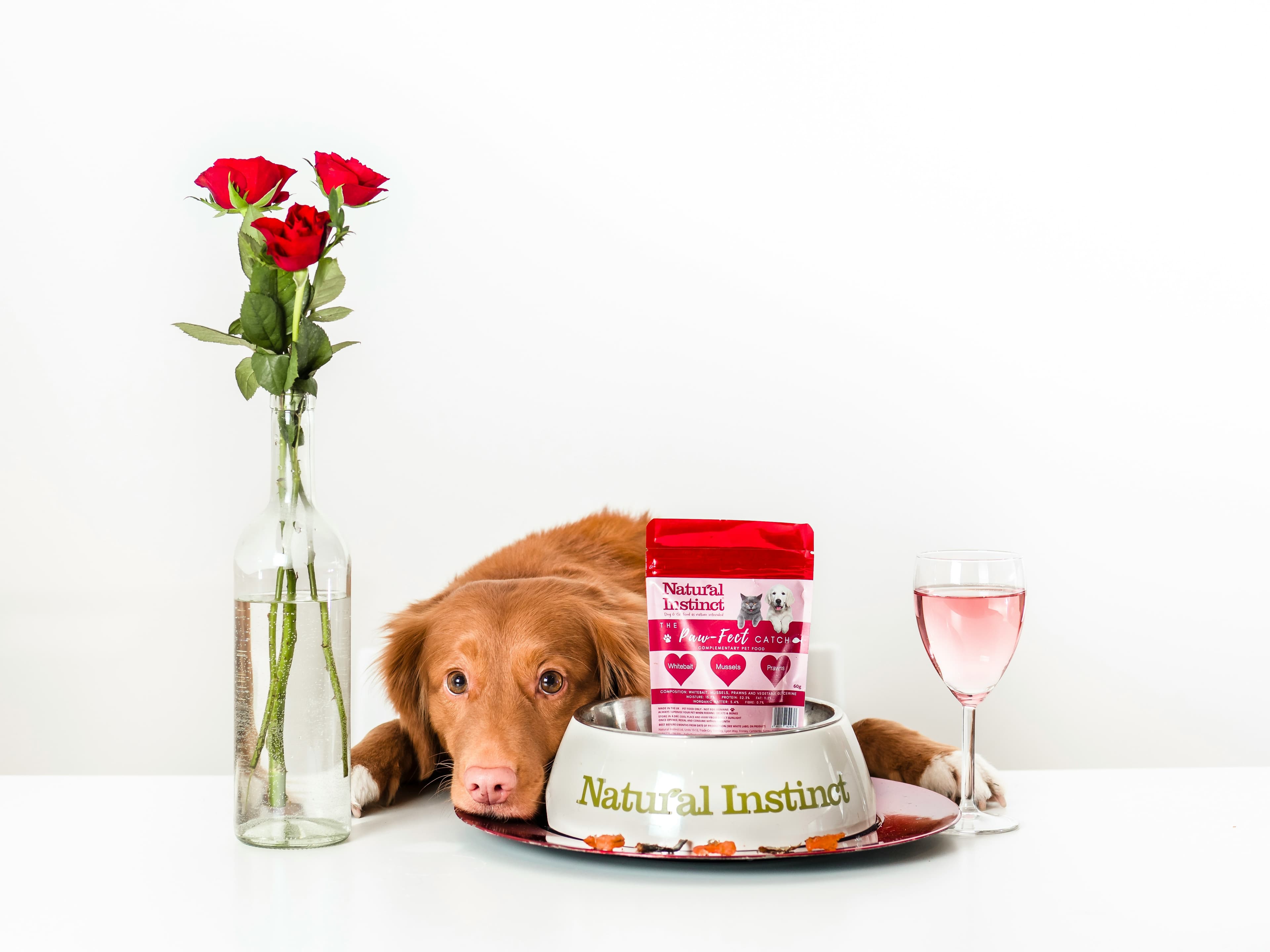Can Dogs Take Pepto Bismol? Unraveling the Truth

What is Pepto Bismol?
Pepto Bismol is a well - known over - the - counter medication that many people keep in their medicine cabinets. Its main active ingredient is bismuth subsalicylate. This compound plays a crucial role in the drug's functionality.
In humans, Pepto Bismol is commonly used for a variety of digestive - related issues. It is highly effective in relieving nausea, that queasy feeling in the stomach that can make one feel miserable and often precedes vomiting. For those who experience heartburn, the burning sensation in the chest caused by stomach acid flowing back into the esophagus, Pepto Bismol can provide much - needed relief. It coats the esophagus and helps to reduce the irritation from the acid.
Indigestion, which often occurs after overeating or consuming rich, heavy foods, is another condition that Pepto Bismol can address. It aids in the digestion process, helping the body break down food more effectively and reducing discomfort such as bloating, gas, and a feeling of fullness.
Moreover, Pepto Bismol is also used to treat diarrhea. It works by reducing the inflammation in the intestines and has some antibacterial properties, which can help in cases where diarrhea is caused by bacteria or other pathogens in the digestive tract. The medication helps to firm up the stools and reduce the frequency of bowel movements, allowing the body to recover more quickly.
The Question: Can Dogs Take Pepto Bismol?
Just like humans, dogs can experience digestive issues from time to time. A dog might have an upset stomach after eating something it shouldn't, like garbage or a new type of food. Diarrhea can also strike, perhaps due to a bacterial infection in their gut or as a side - effect of a change in diet. Nausea is another common problem, which can be especially distressing for our furry friends as they can't tell us exactly how they feel.
When faced with these situations, dog owners often wonder if they can use the same remedies they would for themselves. And one of the most common questions is: Can dogs take Pepto Bismol? It's a logical thought, given that Pepto Bismol is so effective in treating human digestive problems. However, the answer isn't as straightforward as a simple yes or no. There are many factors to consider, including the dog's size, age, the severity of the symptoms, and potential interactions with other medications the dog might be taking. So, before reaching for the Pepto Bismol to help your dog, it's crucial to understand the ins and outs of using this medication for canines.
Vet Opinions on the Matter
Veterinarians, the experts in animal health, have diverse opinions when it comes to dogs and Pepto Bismol.
Some vets believe that, when used at the appropriate dosage, Pepto Bismol can be beneficial for dogs with certain digestive issues. For instance, in cases of mild diarrhea or upset stomachs, a carefully measured dose of Pepto Bismol can potentially help. The bismuth subsalicylate in the medication can work to coat the dog's intestinal lining, reducing irritation and inflammation. This can lead to a decrease in the frequency of diarrhea and an alleviation of the discomfort associated with an upset stomach. Dr. Emily, a practicing veterinarian with over 15 years of experience, says, "In my experience, for small - to - medium - sized dogs with mild, non - chronic digestive problems, a short - term use of Pepto Bismol at the correct dose can be a helpful first - aid measure. It can buy some time until the dog can be examined more thoroughly if the problem persists."
However, not all vets are so quick to recommend Pepto Bismol. Many emphasize the potential risks involved. Dr. James, a veterinary toxicologist, warns, "While Pepto Bismol can have benefits, it's not without its dangers. The salicylate component in bismuth subsalicylate is related to aspirin. Dogs are much more sensitive to salicylates than humans. A relatively small overdose in dogs can lead to serious issues such as vomiting, tinnitus (which dogs can't communicate but may show signs of disorientation), and in severe cases, it can even affect their blood - clotting ability and cause internal bleeding." He further advises that even if a dog seems to have a minor digestive issue, it's crucial to consult a vet before administering any over - the - counter medications like Pepto Bismol.
Another concern raised by vets is that the symptoms a dog is showing might be a sign of a more serious underlying condition. What appears to be a simple upset stomach could be an early sign of a more complex gastrointestinal disorder, such as inflammatory bowel disease or a foreign body obstruction in the intestines. Using Pepto Bismol to mask the symptoms could delay an accurate diagnosis and proper treatment, potentially worsening the dog's condition. So, while some vets see a role for Pepto Bismol in certain limited circumstances, the general consensus is that extreme caution should be exercised, and professional advice should always be sought first.
Safe Dosage for Dogs (If Applicable)
If a vet gives the green light for a dog to take Pepto Bismol, determining the correct dosage is crucial. The dosage is typically calculated based on the dog's weight.
For small dogs, which generally weigh up to 20 pounds (about 9 kilograms), the recommended dosage is usually around 1/4 to 1/2 teaspoon (1.25 - 2.5 milliliters) of the liquid form of Pepto Bismol per 10 pounds (4.5 kilograms) of body weight. This should be given every 6 - 8 hours. For example, a 10 - pound Chihuahua might be given 1/4 teaspoon of Pepto Bismol every 8 hours.
Medium - sized dogs, weighing between 20 - 50 pounds (9 - 23 kilograms), can be administered 1/2 to 1 teaspoon (2.5 - 5 milliliters) of the liquid per 10 pounds of body weight, also every 6 - 8 hours. A 30 - pound Beagle, for instance, would likely receive 1.5 teaspoons of Pepto Bismol every 8 hours.
Large dogs, those weighing over 50 pounds (23 kilograms), may be given 1 - 2 teaspoons (5 - 10 milliliters) of the liquid per 10 pounds of body weight, with the same 6 - 8 - hour interval. A 70 - pound Labrador Retriever could be dosed with 7 teaspoons of Pepto Bismol every 8 hours.
If using the tablet form of Pepto Bismol, the general rule of thumb is that a 262 - milligram tablet can be given to a dog weighing approximately 30 - 50 pounds (14 - 23 kilograms). For smaller dogs, the tablet may need to be crushed and a fraction of it administered, while larger dogs may require more than one tablet, depending on their weight. However, it's always important to note that these are just general guidelines, and the vet's specific instructions should always be followed to ensure the safety and effectiveness of the treatment.
Potential Side Effects on Dogs
While Pepto Bismol can potentially help with a dog's digestive issues, it's not without potential side effects. One of the more common side effects is constipation. The bismuth subsalicylate in Pepto Bismol can slow down the normal movement of the intestines, leading to hard, dry stools and difficulty in defecation. This can be uncomfortable for dogs and, if it persists, may lead to more serious bowel problems. For example, a dog that has been given Pepto Bismol for a few days may start to show signs of straining during bowel movements or have a reduced frequency of bowel movements.
Another visible side effect is black stools. This is a normal reaction to the bismuth in the medication. The bismuth reacts with the sulfur in the dog's digestive tract, forming a black - colored compound that is then excreted in the feces. Although this can be alarming to dog owners, it's usually a harmless side effect as long as the black stools are not accompanied by other symptoms such as diarrhea, vomiting, or lethargy. However, if the black stools are tarry - looking and have a foul smell, it could be a sign of internal bleeding, which is a much more serious condition.
In more severe cases, especially when the dosage is incorrect or the dog is particularly sensitive to the medication, Pepto Bismol can have an impact on the dog's nervous system. High levels of salicylates, as mentioned before, can cause symptoms similar to aspirin toxicity in dogs. This can include tremors, where the dog's body shakes involuntarily, and incoordination, making it difficult for the dog to walk or stand steadily. In extreme cases, it can even lead to seizures, which are characterized by sudden, uncontrolled muscle contractions and can be life - threatening for the dog. Some dogs may also experience an increased heart rate as the body tries to cope with the effects of the salicylates on the nervous system. These more serious side effects highlight the importance of using Pepto Bismol with caution and only under the guidance of a veterinarian.
Alternatives to Pepto Bismol for Dog Digestive Issues
When it comes to addressing a dog's digestive problems, there are several alternatives to Pepto Bismol that can be both safe and effective.
One popular option is probiotics specifically formulated for dogs. These are live microorganisms, usually beneficial bacteria like Lactobacillus and Bifidobacterium, which can help restore the natural balance of the gut microbiota. Just like in humans, a healthy gut microbiome in dogs is essential for proper digestion. Probiotics can be especially helpful for dogs that have had recent antibiotic treatment, as antibiotics can disrupt the normal balance of bacteria in the gut. They can come in various forms, such as powders that can be mixed into the dog's food, or chewable tablets. For example, FortiFlora is a well - known probiotic product for dogs. It contains a blend of beneficial bacteria and prebiotics, which help feed the good bacteria in the gut. Many pet owners have reported that after using probiotics, their dogs had fewer issues with diarrhea and gas, and overall better digestion.
Another alternative is digestive enzymes. These are substances that help break down food in the digestive tract. Dogs with certain health conditions, such as exocrine pancreatic insufficiency (EPI), may have a deficiency in digestive enzymes. For these dogs, enzyme supplements can be a game - changer. Pancreatin is a common enzyme supplement for dogs with EPI. It contains amylase, lipase, and protease, which are essential for breaking down carbohydrates, fats, and proteins respectively. By adding these enzymes to the dog's diet, it can improve their ability to absorb nutrients from food and reduce symptoms like diarrhea and weight loss.
For dogs with mild digestive upset, a simple diet change can also work wonders. A bland diet, consisting of boiled chicken and rice, is often recommended by veterinarians. The chicken provides protein, while the rice is easy to digest and helps firm up the stools. This diet can be fed for a few days until the dog's digestive system settles down. It's a natural and gentle way to soothe an upset stomach without the need for medications. Additionally, there are also specialized hypoallergenic dog foods available on the market. These are formulated to be easy on the digestive system and are free from common allergens like grains, beef, or dairy, which can cause digestive problems in some dogs.
In some cases, herbal remedies can also be used to support a dog's digestive health. Chamomile, for example, has anti - inflammatory properties and can help calm an upset stomach. It can be given to dogs in the form of a tea, although it's important to make sure it's prepared without any added sweeteners or other ingredients that could be harmful to dogs. Ginger is another herb that can be beneficial. It can help reduce nausea and vomiting in dogs. Some pet owners give their dogs small amounts of fresh, grated ginger or ginger - based supplements to ease digestive discomfort. These alternatives offer a range of options for dog owners looking to address their pet's digestive issues without relying on Pepto Bismol.
When to Consult a Vet Instead
There are several situations where dog owners should refrain from self - medicating their dogs with Pepto Bismol and instead consult a veterinarian immediately.
If the dog's symptoms are severe, it's a clear sign that professional help is needed. For example, if a dog is experiencing severe vomiting, where it is unable to keep any food or water down, this could be a sign of a serious underlying condition such as an intestinal blockage, pancreatitis, or a severe infection. Similarly, if the diarrhea is profuse and accompanied by blood or mucus in the stool, it indicates a more serious problem than a simple upset stomach. These symptoms could be related to diseases like parvovirus in puppies, which is highly contagious and can be life - threatening.
Another instance is when the symptoms have persisted for a long time. If a dog has had diarrhea or an upset stomach for more than a day or two despite attempts at home care, it's time to see a vet. Prolonged digestive issues can lead to dehydration, electrolyte imbalances, and weight loss, which can further compromise the dog's health. A vet can run tests, such as fecal exams to check for parasites or blood tests to assess the dog's overall health and determine the root cause of the problem.
Concurrent symptoms also raise red flags. If the dog is showing signs of lethargy, which means it is unusually tired, weak, and has little interest in its normal activities, along with digestive problems, it could be a sign of a systemic illness. A fever, where the dog's body temperature is higher than normal (a normal dog's temperature is typically around 101 - 102.5°F or 38.3 - 39.2°C), in combination with digestive issues, is another serious sign. These additional symptoms could be related to more complex medical conditions that require a vet's expertise to diagnose and treat properly.
Conclusion
In conclusion, the question of whether dogs can take Pepto Bismol is a complex one. While Pepto Bismol contains bismuth subsalicylate which can potentially help with a dog's mild digestive issues like diarrhea and upset stomach, it comes with significant risks. The salicylate component, similar to aspirin, can be dangerous to dogs, especially in the case of overdose, leading to symptoms such as vomiting, nervous system problems, and even internal bleeding.
There are safe dosages if a vet approves its use, which are calculated based on the dog's weight. However, potential side effects like constipation, black stools, and in severe cases, nervous system - related issues, should not be overlooked.
There are also various alternatives to Pepto Bismol for treating dog digestive issues, such as probiotics, digestive enzymes, diet changes, and herbal remedies. These alternatives can be effective and may have fewer risks.
Most importantly, dog owners should always err on the side of caution. When in doubt about their dog's health, especially when dealing with digestive problems, it's crucial to consult a veterinarian. A vet can accurately diagnose the underlying cause of the symptoms and provide the most appropriate treatment, ensuring the well - being and safety of our beloved canine companions.



